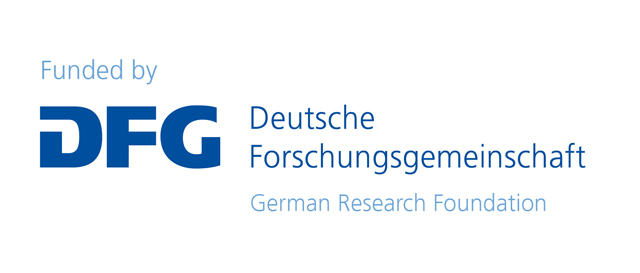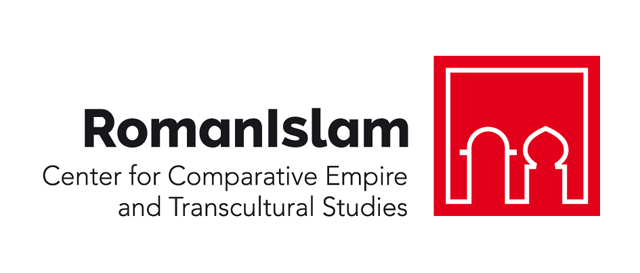Prof. Dr. Arietta Papaconstantinou
January - March 2022

Research Project: Voices of the Conquered: An Egyptian Village Reacts to Arab Rule
This project investigates the indigenous reception of the earliest Arab imperial rule in Egypt. Using archival documentation it proposes to reverse the common approach to early Islamic imperial society, by putting at the centre of the investigation not the imperial administration or the provincial elites who supported it, but the local rural society that was administered by those administrators. Popular indigenous reactions to imperial rule have been a very fertile field of empire studies in recent decades, but have hardly been used for antiquity and the early middle ages because of a general lack of evidence. For late antique Egypt, however, the rich papyrological evidence does allow this sort of study. The project is based on an early-eithgh-century corpus of Coptic documents from a village in Middle Egypt and will be exploring a number of interrelated questions. How did the village population of Egypt react to the major change represented by the end of Roman rule and its eventual replacement a generation later by the new Umayyad Caliphate? How did villagers confronted with a new authority and a new language establish links with the Caliphal authorities? How did they recompose their networks and reorganise their internal relations? What place did their language – Coptic – occupy in this process? Comparative analysis is a crucial part of this project and will be the primary focus of the work done in Hamburg.
Profile
Dr. Arietta Papaconstantinou is a social historian of the late antique and medieval eastern Mediterranean, with a particular interest in the transitional period from the Byzantine to the Islamic empire. Her research focuses on power dynamics in village communities, and how these were affected by imperial policies and demands. She works with the documentary evidence from Egypt and Palestine, which throws invaluable light on the evolution of Christian communities under Muslim rule. She has previously worked on the cult of saints as reflected in documents and inscriptions and its evolution from the beginning to the eighth century, and participated in the ERC project ‘The cult of saints in late antiquity’ (Oxford 2013-2018). Another area of interest is multilingualism and identity in the medieval eastern Mediterranean. She is now concluding a project on the role of debt and credit relations in shaping social hierarchies in the early medieval eastern Mediterranean. Arietta teaches late antique history at the University of Reading and is an associate member of the Faculty of Oriental Studies in Oxford and of the Institute of Byzantine Studies at the Collège de France.
CV
Selected Publications
Bagnall, Roger / Elmaghrabi, Mohamed / Haggag, Mona / Hickey, Todd / Papaconstantinou, Arietta / Thompson, Dorothy (2021), Roman Egypt: A History, edited by Roger Bagnall, Cambridge: Cambridge University Press.
Papaconstantinou, Arietta (2020), “Hagiography in the Archives: Real-Life Miracles and the Sacred Economy in Eighth-Century Egypt”, in Vincent Déroche, Bryan Ward-Perkins, Robert Wiśniewski (eds.), Culte des saints et littérature hagiographique: accords et désaccords, Centre de recherche d’Histoire et Civilisation de Byzance, Monographies 55, Leuven: Peeters,) 55-75.
Papaconstantinou, Arietta (2021), ‘Translations II: Greek Texts into other Languages (4th - 15th c.): Section II - Coptic’, in: Stratis Papaioannou (ed.), The Oxford Handbook of Byzantine Literature Oxford: Oxford University Press, 571-588.
Papaconstantinou, Arietta (2020), “‘Great Men’, Churchmen, and the others: Forms of Authority in the Villages of the Umayyad Period”, in: Dominic Rathbone / Micaela Langelotti (eds.), Village Institutions in Egypt from Roman to Early Arab Rule, Proceedings of the British Academy 231, Oxford: Oxford University Press, 178-189.
Papaconstantinou, Arietta (2016), “Credit, debt, and dependence in early Islamic Egypt and Southern Palestine”, in: Jean-Luc Fournet / Arietta Papaconstantinou (eds.), Mélanges Jean Gascou: textes et études papyrologiques (P.Gascou), Paris: ACHCByz, 613-642.
Papaconstantinou, Arietta (2015), “The Rhetoric of Power and the Voice of Reason: Tensions Between Central and Local in the Correspondence of Qurra ibn Sharīk”, in Stephan Procházka / Lucian Reinfandt / Sven Tost (eds.), Official Epistolography and the Language(s) of Power, Proceedings of the 1st International Conference of the Research Network Imperium and Officium: Comparative Studies in Ancient Bureaucracy and Officialdom, University of Vienna, 10-12 November 2010, Papyrologica Vindobonensia 8, Vienna: Verlag der Österreichischen Akademie der Wissenschaften, 267-281.
Papaconstantinou, Arietta (2012), “Why did Coptic Fail where Aramaic Succeeded? Linguistic Developments in Egypt and the Near East after the Arab Conquest”, in: Alex Mullen / Patrick James (eds.), Multilingualism in the Graeco-Roman Worlds, Cambridge: Cambridge University Press, 58-76.
Papaconstantinou, Arietta (2009) “‘What Remains Behind’: Hellenism and Romanitas in Christian Egypt after the Arab Conquest”, in: Hannah Cotton / Robert Hoyland / Jonathan Price / David Wasserstein (eds.) From Hellenism to Islam: Cultural and Linguistic Change in the Roman Near East, Cambridge: Cambridge University Press, 447-466.
Papaconstantinou, Arietta (2008) “Between umma and dhimma. The Christians of the Middle East under the Umayyads”, Annales islamologiques 42, 127-156.
Papaconstantinou, Arietta (2001) Le culte des saints en Égypte des Byzantins aux Abbassides. L’apport des papyrus et des inscriptions grecs et coptes, Le monde byzantin, Paris: CNRS Éditions.


